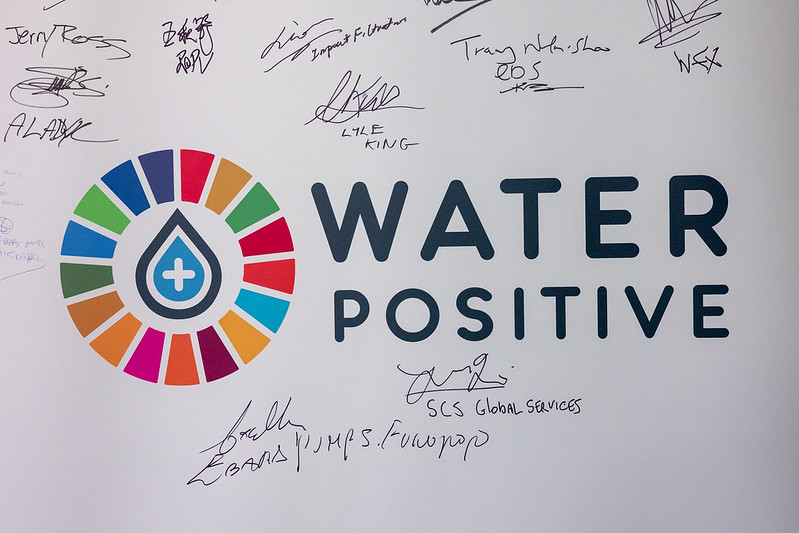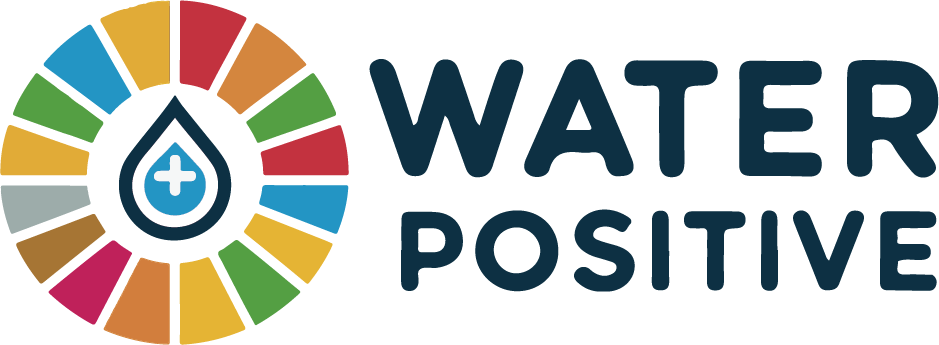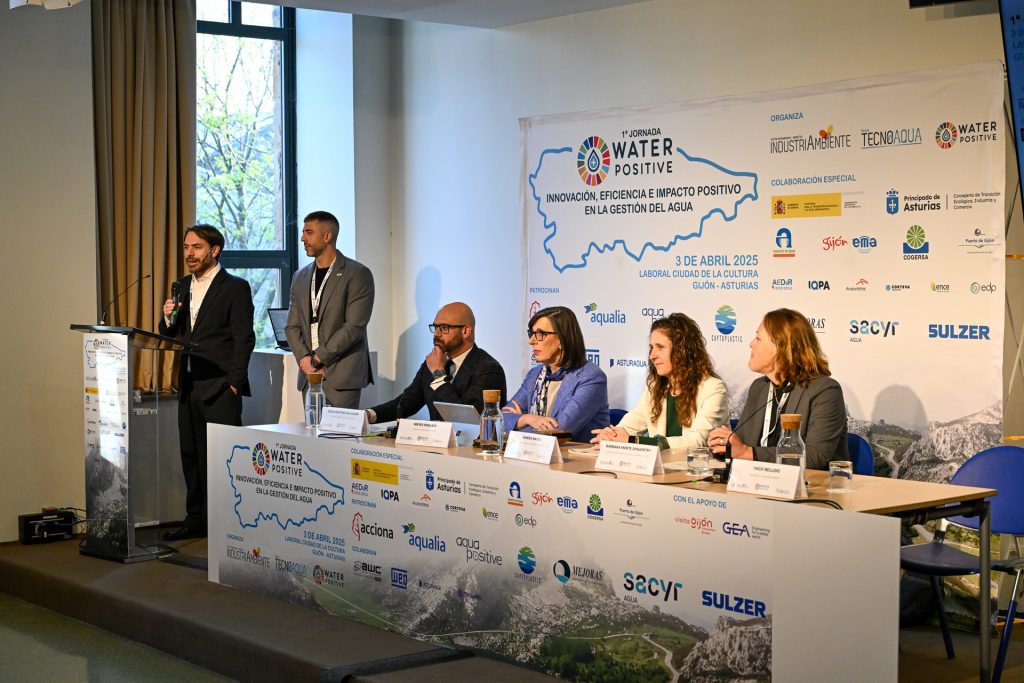First institutional round table: setting the course
The event began with an institutional round table that laid the groundwork for the day. Local authorities, representatives of international organizations and members of the Think Tank highlighted the urgency of adopting strategies that go beyond mere water conservation.
The “Water Positive” concept was presented as a systemic and holistic approach that advocates a net positive impact on the water cycle, offsetting consumption and fostering water resilience in communities and industries. This roundtable underscored the need for collaboration across sectors to address global challenges, such as water scarcity that could affect nearly two billion people by 2050 if no action is taken.
Vanesa Mateo Pérez, as Director General of Water for the Government of the Principality of Asturias, has played a key role in driving innovative initiatives for the sustainable management of water resources in the region. One of the most outstanding projects under her leadership is related to water regeneration in Asturias, specifically in the framework of the collaboration with Gijón, a city that seeks to position itself as a benchmark in water sustainability. This project, aligned with the “water positive” concept, aims not only to guarantee water supply and quality, but also to move towards a circular economy model that maximizes the use of resources through the reuse of reclaimed water.
The reclaimed water project in Asturias, with a special focus on Gijón, focuses on the recovery and advanced treatment of wastewater for reuse, especially in the industrial sector. In a context where climate change is increasing pressure on water resources, this initiative seeks to reduce dependence on fresh water and mitigate the effects of scarcity.
In collaboration with companies such as DuPont and the support of European funds, such as Next Generation EU funds, a pilot has been implemented at the Villapérez wastewater treatment plant near Oviedo, which has then been linked to broader strategies in the region.
This pilot demonstrated the feasibility of treating effluents to convert them into quality water suitable for industrial uses, such as make-up water in production processes.
In Gijón, the project is part of a more ambitious vision of digitalization and sustainability of the water cycle. Vanesa Mateo highlighted the importance of combining advanced technologies, such as ultrafiltration, with digitalization to optimize the management of water networks and minimize losses. In addition, synergies have been established with the Municipal Water Company of Gijón (EMA) and the Water Consortium of Asturias (Cadasa) to extend these practices to other municipalities. The approach not only responds to local needs, but also aligns with European Union directives on water reuse and environmental protection.
This effort reflects the commitment of Asturias, under the leadership of Vanesa Mateo, to lead the transition to a more resilient and sustainable water model. The reclaimed water project not only benefits the industry, but also contributes to the conservation of local ecosystems, reducing the extraction of water from natural sources and promoting a balance that positions Gijón and Asturias as examples of innovation in water management.
Barbara Monte Donapetry, President of the Cantabrian Hydrographic Confederation – MITECO, highlighted the importance of sustainable water management in the Cantabrian region. She underlined the efforts of the Confederación Hidrográfica del Cantábrico to implement advanced technologies and water conservation strategies in order to face environmental and climate challenges.
Jesús Martínez Salvador, President of Empresa Municipal de Aguas de Gijón (EMA Gijón), spoke about Empresa Municipal de Aguas de Gijón’s initiatives to improve water use efficiency and reduce its water footprint.He presented recent projects including the modernization of infrastructures and the implementation of intelligent systems for water management.
Nieves Roqueñí, President of the Port Authority of Gijón, focused her speech on the importance of collaboration between different entities for water management.She highlighted the Gijón Port Authority’s projects to improve water quality and promote sustainable practices in the port, including waste reduction and the implementation of advanced filtration technologies.
Panel: Welcome Asturias to Water Positive: Remarks by the President and Secretary General of the Water Positive Think Tank
The President of the Water Positive Think Tank, Daniele Strongone, emphasized: “Being ‘Water Positive’ is not just a goal, it is a shared responsibility. We must transform our relationship with water, from how we consume it to how we return it to the planet”.
Alejandro Sturniolo, Secretary General of the Water Positive Think Tank added: “This first event in the world, held today in Asturias, in Gijón, is a crucial step to make success stories visible and build synergies that will allow us to move towards a future where no one is left behind in access to water”. Both leaders agreed on the importance of collective action and scientific knowledge as fundamental pillars.
The welcoming panel and moderator of the table was led by Vanesa Mateo Pérez, Director General for Water of the Government of the Principality of Asturias, who officially opened the event. In her speech, she highlighted Asturias’ commitment to water sustainability and the importance of initiatives such as this one to position the region as a benchmark in responsible water management.
Vanesa Mateo introduced the members of the main table: Daniele Strongone, Alejandro Sturniolo, Domingo Zarzo, President of AEDyR and José Díaz-Caneja, CEO of Acciona Infraestructuras, all of them leading figures in the field of water and influential members of the Think Tank Water Positive. Together, they shared a comprehensive view on the origins, evolution and future prospects of the “Water Positive” philosophy, as well as the key factors for its implementation.
José Díaz-Caneja, CEO of ACCIONA Infrastructure, highlighted the importance of sustainable water management and presented ACCIONA’s innovations in this area. ACCIONA leads the water treatment sector through the design, construction and operation of drinking water treatment plants, wastewater treatment plants, reverse osmosis desalination plants and tertiary treatments for water reuse. The company applies the latest technologies to optimize water treatment processes and minimize energy consumption.
In collaboration with Sacyr Agua, Acciona has promoted the “Water Positive” initiative, announced in October 2024, which seeks to go beyond simply reducing water consumption. The aim is to actively contribute to the restoration of water resources through the use of non-conventional sources, such as desalination and water reuse. A company is considered “Water Positive” when it generates more “new water” – water that is returned to the environment or made available for other uses – than it uses in its operations, both directly and indirectly.
Peru, not only treat wastewater, but also incorporate renewable energies (25% of its energy comes from solar panels) and recover water resources to benefit the local ecosystem. In addition, the company is exploring solutions such as certified water footprint measurement and digital offsetting tools, similar to carbon credits, to expand its positive impact on the water cycle.
With its expertise in water treatment and management, Acciona seeks to lead the international industrial market in this area, offering comprehensive services that help other organizations also achieve a positive water footprint. This approach not only responds to environmental sustainability, but also strengthens its reputation and competitiveness in a context where responsible water management is increasingly valued.
Domingo Zarzo, President of AEDyR, addressed the current state of water reuse and desalination, highlighting the technological advances and challenges facing the sector. He stressed the importance of these technologies in addressing water scarcity and promoting sustainable water resource management. Zarzo emphasized the need for holistic planning and innovative approaches to ensure the long-term viability of these vital solutions. He highlighted the need for innovative financing models, such as water footprint offsetting, a key mechanism for attracting private investment in reuse infrastructure. The AEDYR representative highlighted the need to continue promoting the use of non-conventional resources, such as desalination and reuse, within water management planning. He also called for communication and social awareness of the importance of reclaimed water to be strengthened in order to ensure its acceptance and expansion. Spain is a benchmark in desalination and reuse, but there is still room for improvement to consolidate these solutions on a large scale. Let’s keep moving forward together!
Water Positive Day
Esmeralda Leyva, Vice President of the Water Positive Think Tank, in her participation in the Water Positive Summit, announced that on June 17, within the framework of the World Day to Combat Desertification and Drought, Water Positive Day will also be celebrated every year.

Technical workshop: synergies and networking
The event culminated with a large technical workshop that marked one of the most dynamic moments of the day. Divided into practical workshops, attendees participated in sharing sessions where technical solutions were explored, experiences were shared and innovative ideas were generated. This space not only fostered the exchange of knowledge, but also served as a networking platform, connecting professionals from various disciplines and regions. Participants highlighted the collaborative atmosphere and practical approach as key to translating discussions into concrete actions.

Cocktail reception with traditional bagpipes
After the workshop, the event was followed by a networking cocktail party enlivened by the sound of traditional Asturian bagpipes. This cultural touch not only added a unique charm to the evening, but also symbolized the fusion between tradition and modernity, reflecting how local roots can inspire global solutions. Attendees took advantage of this moment to consolidate contacts and enjoy a relaxed atmosphere after an intense day of work.
Cultural visits: La Laboral and the sunset in Gijón
The day was enriched with cultural visits that offered a respite and a connection with the environment. In the afternoon at the end of the day, participants toured La Laboral, an impressive cultural complex noted for its architecture and historical relevance. At the end of the day, a sunset tour of Gijón allowed attendees to enjoy the coastal views and reflect on the importance of water in a privileged natural setting.These activities not only complemented the event, but reinforced the message of integrating sustainability with cultural identity.

Conclusion
Water Positive Gijón on April 3, 2025 was much more than an event: it was a call to action and a tangible demonstration of how collaboration, innovation and culture can converge to address one of the greatest challenges of our time. With an agenda packed with inspiring content and spaces for human connection, Asturias and Gijón positioned itself as a benchmark in the fight for a “Water Positive” future.

Flickr Gallery


